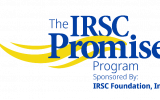Innovations

In 2016, a group of students sent a letter to Seattle Central College’s administrators to name a part of their identity they felt was being overlooked as they embarked on a journey that would be pivotal in determining their futures. The students, who were previously incarcerated, had chosen education as the path to restart their lives upon leaving a Washington state prison. While community and technical colleges are open access institutions, they are still institutions with barriers that are, at times, only visible to some of the most minoritized and marginalized in our communities. In...

Competing with 32 teams across the U.S., Calhoun Community College’s student manufacturing team placed second at the 2022 Project MFG National Championship in Wichita, Kansas. Project MFG shines a light on the need and opportunities for skilled trades by focusing on the development of new talent to provide a path forward for individuals and our country. Project MFG competitions throughout the U.S. promote the trades across industries and help advance the next generation of highly skilled trade professionals.
According to Tad Montgomery, Calhoun Machine Tool Technology instructor, the two-day...
Tags:

In 2008, during a televised event, then White House Chief of Staff Rham Emanuel said, “You never want a serious crisis to go to waste. And what I mean by that is an opportunity to do things that you think you could not do before” (Emanuel, 2008, 0:04). Many articles have been written about the crises the U.S. postsecondary education ecosystem faces regarding relevance, funding, and innovation, all of which demand swift action (Alexander, 2020; Cristensen & Eyring, 2011; Crow & Dabars, 2015; Grawe, 2018; McGee, 2015, Phelan, 2014). However, for many colleges, change has not come...
Tags:

Indian River State College (IRSC) has received a three-year, $2,735,771 award from the National Science Foundation (NSF) to establish a National Electric Vehicle Consortium (NEVC) to help alleviate an immediate shortage of skilled technical workers across almost every sector of the fast-growing electric vehicle (EV) industry. The consortium will focus on manufacturing, installation, operations, maintenance, repair, vehicle conversion, safety and standards, and emerging technological advances within the EV sector. IRSC will lead efforts that link academic, agency, and industry experts across...
August
2022
Please feel free to download this PDF of the tables and appendices for the August 2022 issue of Learning Abstracts.
Tags:

Glendale Community College (GCC) has become an affiliate of the Bee Campus USA program, designed to marshal the strengths of educational campuses for the benefit of pollinators. According to the Bee City USA website (n.d.), “Bee Campus USA affiliates make commitments to conserve native pollinators. Students, faculty, administrators, and staff work together to carry out these commitments and make their campus a better place for pollinators” (“Bee Campus USA Commitments” section).
GCC is the only college in Arizona to be named as a Bee Campus and joins with other cities and campuses across the...

In January 2018, 14 local school district superintendents and Jackson College’s (JC) President and CEO, Dr. Daniel J. Phelan, initiated the launch of Jackson County Early College (JCEC), designed to offer students the opportunity to earn a high school diploma and an associate degree, certification, or up to 60 college credits. This article highlights the program’s successes since its first students walked through the doors in fall 2018.
Cost Effectiveness
Since the inception of JCEC, JC has reduced tuition and fees for early college students in a variety of ways. The college capped digital...
June
2022
Please download the attachment above for information about the NDCC Special Issue on Student Veterans in Two-Year and Community Colleges call for papers.
Tags:

Mesa Community College (MCC) and the Family Involvement Center (FIC) are collaborating to offer the Parent Peer Support Social Work Scholarship Stipend Program, an innovative program bolstering support for families overcoming past adversity and crisis while building careers in the profession of social work. Specifically, FIC and the MCC Social Work programs are piloting an education, training, and career pathway for parents with opioid/substance use disorder (OUD/SUD) and lived experience having a child involved with the Department of Child Safety (DCS).
The social work stipend program was...

Congratulations to the 2021-2022 Innovation of the Year Award-winning innovations and associated team members from 32 participating League Board and Alliance member colleges! The League initiated the Innovation of the Year award over 35 years ago to recognize local community college projects and initiatives that reflect the spirit of innovation and experimentation on which our organization was founded. The competition provides an opportunity for colleges to showcase their innovative programs, practices, policies, partnerships, and resources; to celebrate the dedicated educators who are...
Tags:

In response to a pandemic that has disrupted lives and derailed plans for so many in its service district, Indian River State College (IRSC) has made its most significant investment ever in eliminating barriers to higher education. The college introduced the IRSC Promise in March at a special assembly for Fort Pierce Central High School seniors. Funded by the IRSC Foundation, the Promise is a tuition-paid program for qualifying 2022 high school graduates from public and public charter schools in Indian River, Martin, Okeechobee, and St. Lucie counties who seek to earn associate degrees at...
Tags:

Community colleges are uniquely situated to address the nation’s need for a highly innovative, adaptable, and skilled workforce. At the federal and state levels, funding is available for design and delivery of workforce-building programs combining academic excellence, technical training, and practical experience.
Santa Fe College (SF) in Gainesville, Florida, has received a state grant to create a STEM-focused charter high school. The charter school will provide students with the tools needed to be successful in the 21st century workforce. SF’s vision is to ensure that each charter school...
May
2022
Beyond the Food Pantry is a report on the League's two-year Innovative Solutions for Hunger Relief and Student Success project, which sought to help community colleges reduce food insecurity for students and their families in sustainable ways that foster student retention, persistence, and success. The League worked with two community colleges—Northeast Texas Community College and West Kentucky Community and Technical College—serving rural, economically distressed areas to develop effective, innovative models for hunger relief that can be adopted or adapted by community colleges and other...
Tags:

Community colleges play an essential role in preparing the U.S. workforce. Historically, they have responded to the needs of local economies, working closely with industry, government, and other education sectors (Boggs, 2010). Despite the successful track record of community colleges, the nation is faced with a significant challenge: By 2022, skilled technical job openings in the U.S. are projected to exceed the skilled technical labor force by 1.3 percentage points, or about 3.4 million (National Science Board, 2019).
The Challenge
The National Science Board (2019) estimates that there are...
Tags:

Community colleges have been evolving for over 120 years and have morphed from culture to culture to meet the needs of their various constituencies. Initially, community colleges created a Culture of Transfer and a Culture of Workforce Training. A Culture of Teaching is perhaps the most embedded culture in the community college’s history, fortified by the 1988 special report Building Communities: A Vision for a New Century declaration, “At the center of building communities there is teaching . . . . thus building community through dedicated teaching is the vision and inspiration of this...
Tags:

Mesa Community College (MCC) launched its second Z Degree program, an Associate in Arts with an emphasis in communication, beginning in the spring 2022 semester. The college’s first Z Degree, an Arizona General Education Curriculum certificate and general associate’s degree, was introduced in 2019. A Z Degree is offered completely online with zero textbook costs, saving students time and money.
“The Z Degree offers students greater flexibility, enabling them to take classes that fit their schedule. We built this program for the students who want flexibility, less distraction, and less cost...

On February 3, 2021, I participated in a California panel discussion hosted by the Community College Research Center (CCRC) at Columbia University that addressed the cost benefits of adopting a guided pathways model. The discussion focused on two CCRC reports: The Economics of Guided Pathways: Cost, Funding, and Value (Belfield, 2020) and Funding Guided Pathways: A Guide for Community College Leaders (Jenkins et al., 2020). Based on my experience as President of Bakersfield College (BC), I assert that both reports can be extremely useful for administrators responsible for budgets, best...

Colleges and universities across the U.S. and beyond are striving to recruit and retain a diverse faculty that is representative of their student populations. Institutions have revamped their practices to ensure that faculty diversity is at the forefront of hiring considerations; everything from recruitment practices to committee trainings has been transformed with great care. A recent step taken by Austin Community College (ACC) to enhance its diversity efforts was to pilot the inclusion of the student voice when hiring full-time faculty. While it is standard practice to involve graduate...

In August of 2020, Rio Salado College became a founding partner of the College Innovation Network (CIN), which was designed to connect leaders from colleges and universities with EdTech innovators to advance students’ academic, career, and life outcomes (Flores, 2020). In August 2021, CIN, an initiative spearheaded by WGU Labs, published the results of a multi-institution survey aimed at understanding students’ learning experiences with education technology (EdTech) during the 2020-2021 academic year.
The New Digital Divide: How EdTech Self-Efficacy is Shaping the Online Student Learning...
March
2022
For over 100 years, the community college has been evolving as one of the most effective institutions of higher education in addressing the social and economic needs of the nation. During the 1950s and 1960s, there was general agreement that the community college was a comprehensive college designed to serve the multiple needs of a diverse student body through a variety of programs, including developmental, transfer, vocational, general, and community education. In the past few decades, that purpose has been changing as the developmental, general, and community education programs have been...










